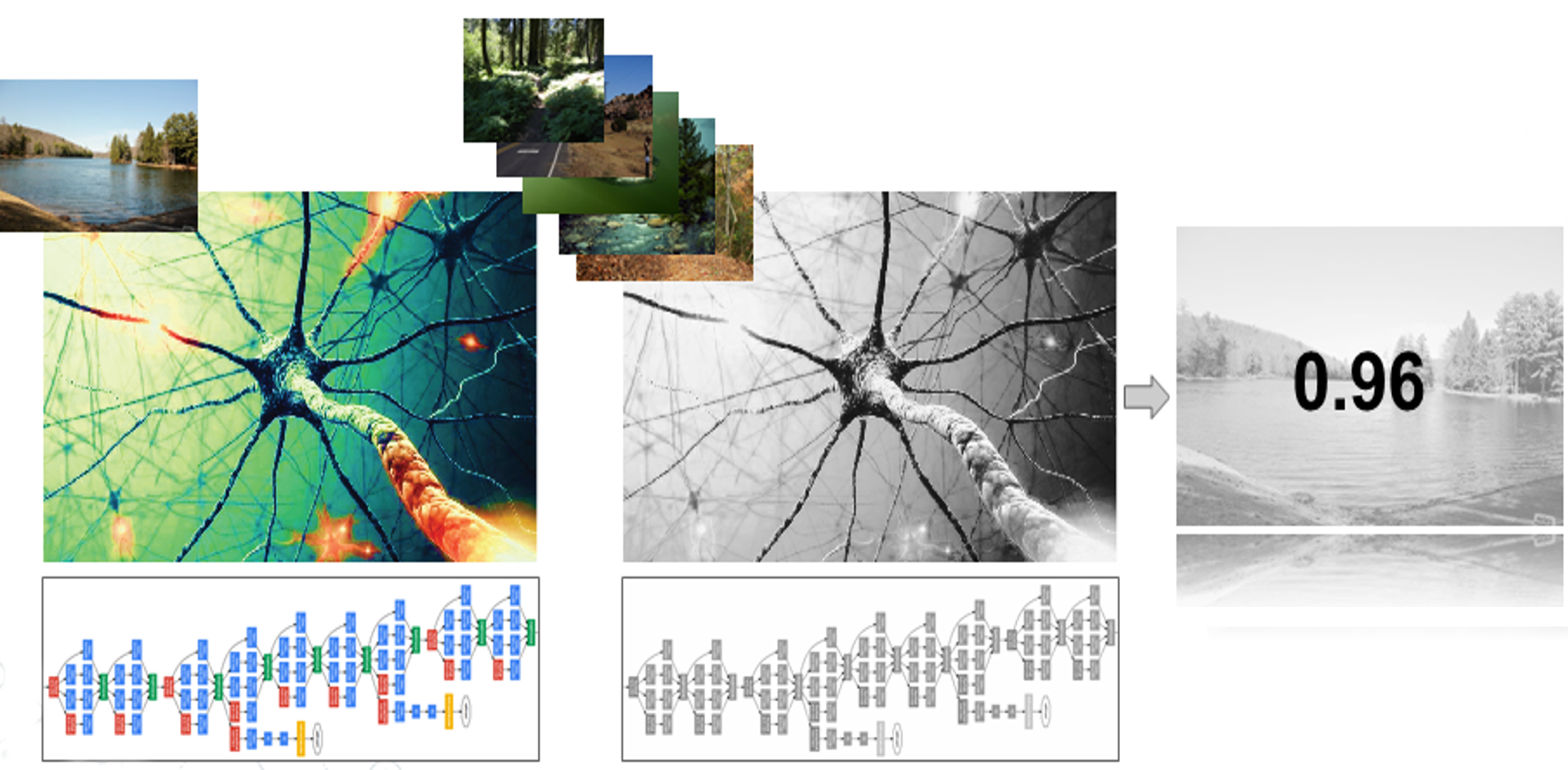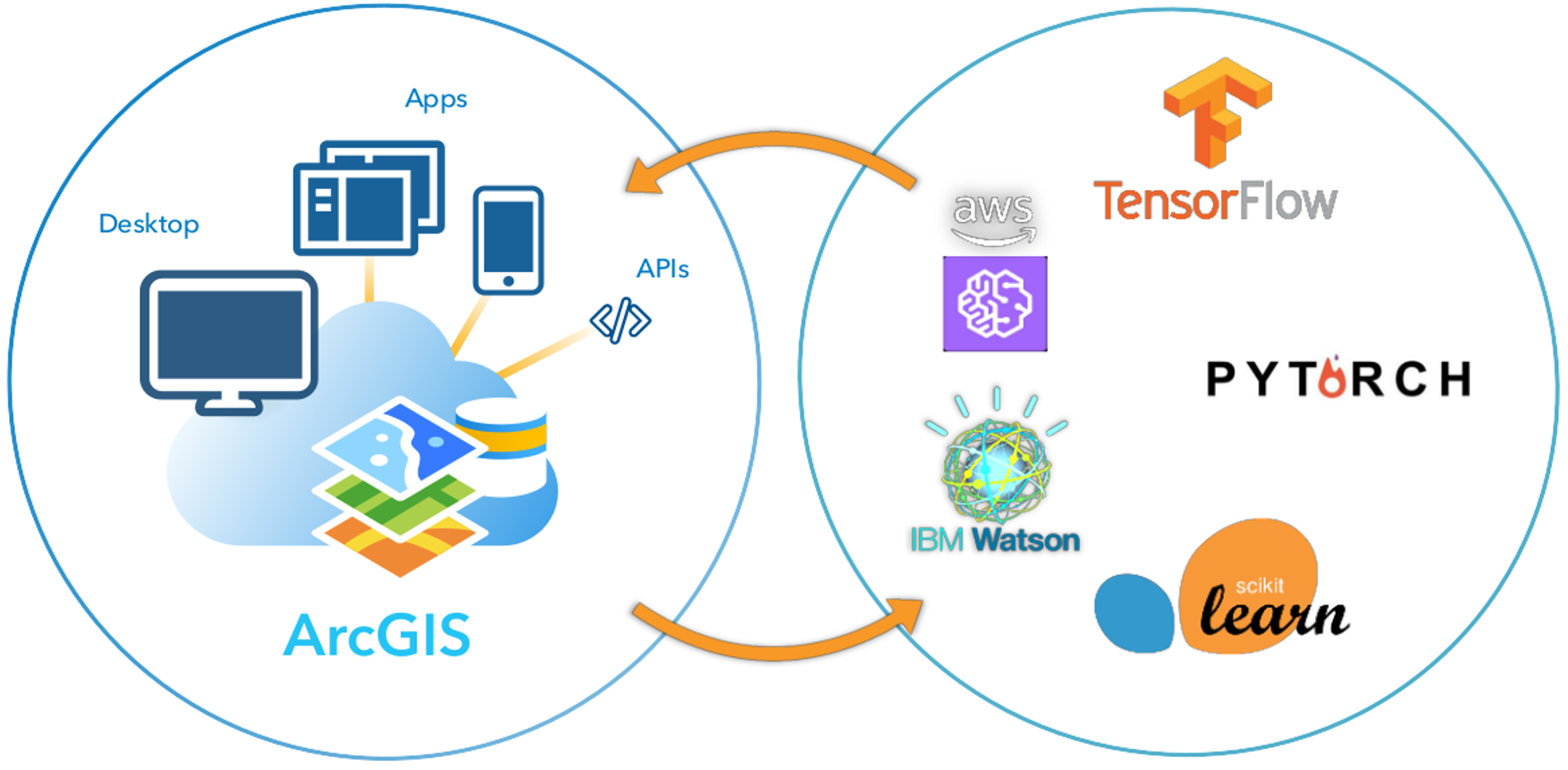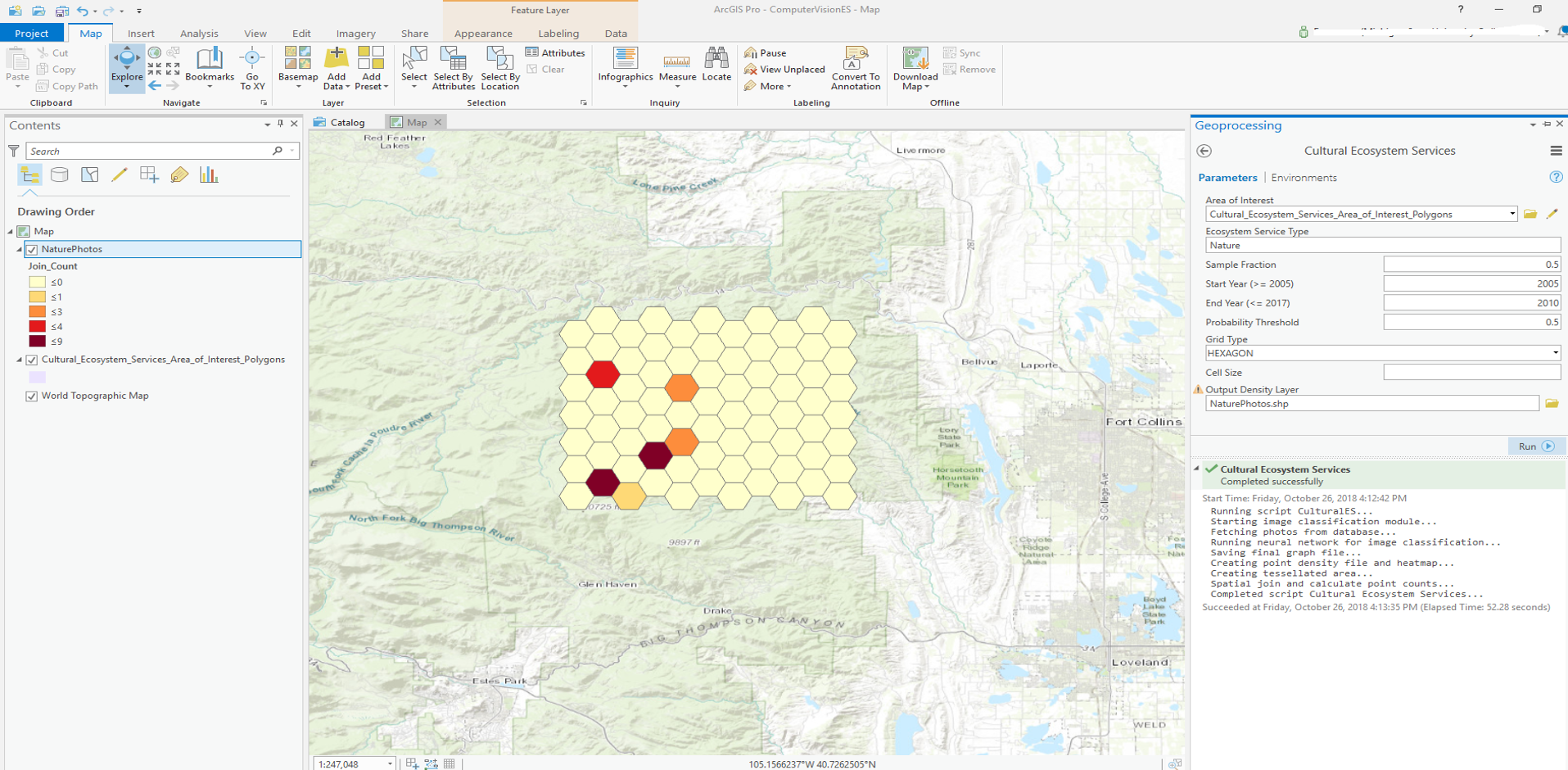Project Summary
The non-material benefits people obtain from ecosystems are called ‘cultural services'. They include aesthetic inspiration, cultural identity, sense of home, and spiritual experience related to the natural environment. Typically, opportunities for tourism and for recreation are also considered within the group. Cultural services are deeply interconnected with each other and often connected to provisioning and regulating services: Small scale fishing is not only about food and income, but also about fishers’ way of life. In many situations, cultural services are among the most important values people associate with Nature – it is therefore critical to understand them. Our tool helps users understand which areas have the highest concentration of cultural ecosystem services or the non-material benefits of Nature and therefore identify locations of high recreational, inspiration, aesthetics and spiritual value. We extract user-uploaded photos from a 2005-2017 Flickr database and predict density of nature-based photos using a trained Convolutional Neural Network (CNN) model with TensorFlow. The CNN used here is based off Google's own Inception-v3 model.
Objectives
- Use pre-classified Flickr photos (e.g. nature vs urban) as a proxy for the location of cultural ecosystem services
- Query photos database based on spatiotemporal parameters (e.g. years, area of interest)
- Classify nature photos using CNNs and compute densities within a spatial grid
Technology
Project Website:
https://github.com/f-tonini/deep-learning-es
Deployment Architecture:
Windows/Ubuntu, ESRI ArcGIS (Enterprise, Desktop, Online), PostgreSQL, Microsoft Azure
Language:
Python


